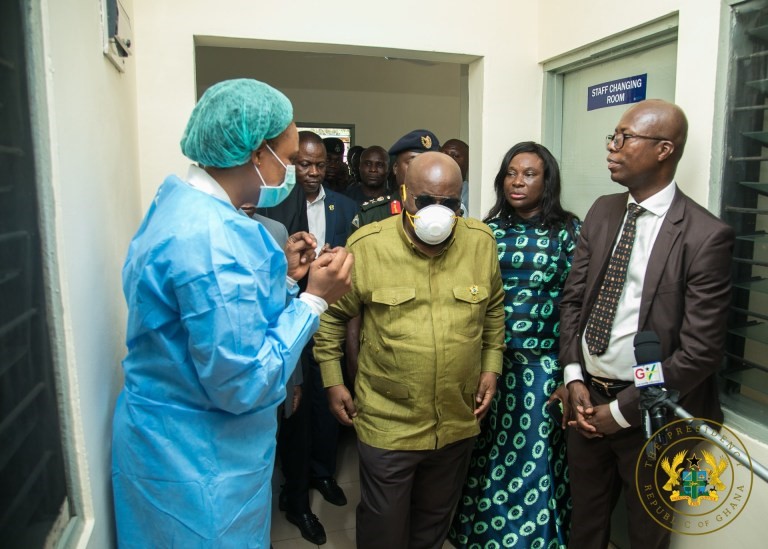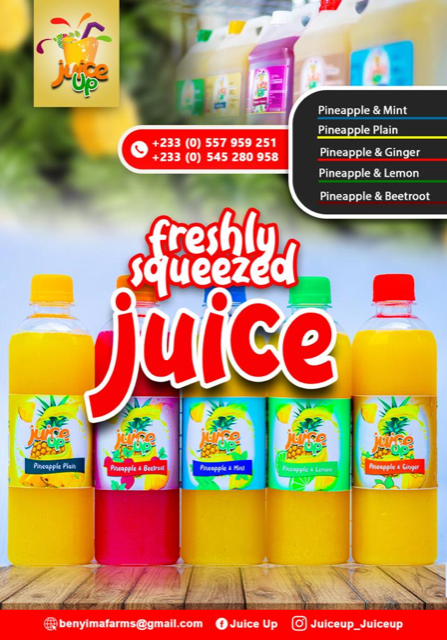Featured Articles
“Harnessing international skills for national development"

COVID-19: Ghana Imposes Restriction of Movement in Hotpots
Ghana has imposed restrictions on the movement of persons within the Greater Accra and Kasoa as well as Kumasi and its environs in order to give the government the opportunity to stave off the COVID-19 pandemic. The areas under partial lockdown have been identified as the hotspots of the coronavirus transmission.
The country now has 378 confirmed coronavirus cases, six deaths and four recoveries. Two are in critical condition and 370 are mild cases who are in isolation and are been managed at home or at treatment centers.
The president, Nana Addo Dankwa Akufo-Addo first imposed a 14-day partial lockdown on March 30, 2020 and extended it for a week in his sixth address to the nation on Ghana’s enhanced response to the Coronavirus Pandemic on Thursday, April 9. The extension takes effect from Monday, April 13. He said the lockdown measures imposed to combat the disease have so far yielded moderate successes, however “this fight is not yet over and we are by no means out of the woods yet.”
Closed borders
The country’s borders remain closed as part of measures to deal with the pandemic. President Nana Addo Dankwa Akuffo-Addo said the decision to keep the country’s borders shut was based on data which indicated that the overwhelming majority of confirmed cases came from travelers or from people who had come into contact with travelers.
“We now see that the decision to closed down our borders has been justified. One hundred and five of the cases came from those who were mandatorily quarantined and tested on their arrival on March 21 and 22 March. One hundred and ninety-two of the cases came from travelers who entered our country before the closure and their contacts. Seventy-nine per cent of the 378 confirmed cases are thus imported,” said President Akufo-Addo.
Coronavirus updates
Giving a breakdown of the figures, the President said 37,405 samples have so far been taken for testing, of which 31,933 are in Accra, and 5,472 are in Kumasi. As at Wednesday, April 8, a total of 14,611 contacts of the samples collected had been tested for the virus in Accra and Kumasi.
President Akufo-Addo added that 11,308 contacts were tested in Accra, and 52 of them were found to be positive, while 3,303 contacts had been tested in Kumasi, and 25 found to be positive.
“Whilst the results are encouraging, in suggesting a limited number of positives and community spread, we expect to be able to test some 10,000 additional samples in the coming week to give us a clearer picture to enable us take a decision on the way forward,” he emphasized.
Water/electricity bill.
As part of measures to mitigate the social and economic impact of the pandemic on Ghanaians, the government, on Sunday, April 5, announced that it will absorb the water and electricity bills for all Ghanaians for the next three months, i.e. April, May and June.
The President on Thursday, April 9, announced more mitigation measures. He said “government will fully absorb the electricity bills for the poorest of the poor, that is free electricity for persons who consume zero to 50 kilowatt hours a month for this period.”
“In addition, for all other consumers, residential and commercial, Government will absorb, again, fifty per cent of electricity bill for this period, using your March 2020 bills your benchmark, he added.
He said the move was to support industry, enterprises and the service sector, as well as provide some relief to households for lost income.
Frontline workers
Furthermore, government has placed a high priority on the procurement of personal protective equipment (PPEs) to protect the lives of the frontline health workers,
So far, government has acquired masks, examination gloves, reusable goggles, coveralls, N-95 respirators, waterproof gumboots, reusable face shields, hand sanitizers and shoe covers for use by health workers in all the districts.
That, notwithstanding, Government, in the face of the global shortage of PPEs has engaged with local manufacturing companies to assist in the domestic production of PPEs.
An insurance package of GH¢350,000 for each health personnel and allied professional at the forefront of the fight, has been put in place, with a daily allowance of GH¢150 being paid to contact tracers. Government has also decided that all health workers will not pay taxes on their emoluments for the next three months.
All frontline health workers will receive an additional allowance of 50 per cent of their basic salary per month, for March, April, May and June. Health workers are also enjoying free bus rides to and from work, for the entire duration of the restrictions.
Interventions
The government has also initiated the Coronavirus Alleviation Program (CAP), to protect households and livelihoods, support micro, small, and medium-sized businesses, minimize job losses, and source additional funding for promotion of industries to shore up and expand industrial output for domestic consumption and exports.
Through this program, about 400,000 individuals and homes in the affected areas of the restrictions in Accra and Kumasi, are provided with food. The food is in the form of dry food packages and hot meals, and delivered to vulnerable communities in Accra, Tema, Kumasi and Kasoa.
Government, in collaboration with the National Board for Small Scale Industries (NBSSI), business and trade associations and selected commercial and rural banks, will roll out a soft loan scheme up to a total GH¢600 million, which will have a one-year moratorium and two-year repayment period for micro, small and medium scale businesses.
Cleaning of markets
Towards ensuring the cleanliness of the country, markets and lorry terminals in all the 16 regions have been cleaned and disinfected. In the Greater Accra and the Greater Kumasi area, the Ministry of Sanitation and Water Resources, together with personnel drawn from the Police, Military, Fire Service and Prisons Service have embarked on desilting gutters, collection and disposal of garbage from homes, public places, markets and vehicle terminals.
Government took the extra step of closing a few markets in Accra and Kumasi, where traders and market women had flouted the rules for social distancing.


